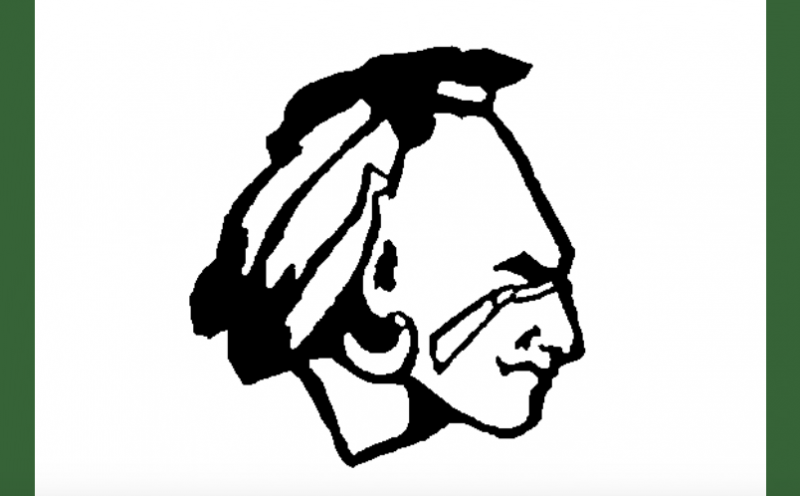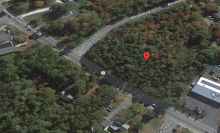Wampanoag tribe opposes state bill to remove Indian logos, mascots
A bill that would ban Native American mascots statewide should be scrapped, leaders of a local Wampanoag tribe said.
The announcement comes as the tribe works with school officials on the future of the controversial Dartmouth High Indian logo.
Cheryl Andrews-Maltais, a Dartmouth High graduate and current chair of the Wampanoag Tribe of Gay Head Aquinnah, said that an outright ban would remove indigenous people from contemporary consciousness, erase the tribe’s current existence, “and ultimately relegates us into a marginalized existence in history, eliminating us as part of today’s culture and society.”
In a letter dated Nov. 9 to state senators Michael Rodrigues (D-Westport), Cindy Friedman (D-Arlington), and Jason Lewis (D-Winchester), Andrews-Maltais wrote that the tribal government agrees “we simply do not support this legislation as written.”
Under the proposed legislation, the state would ban the use of any Native American mascots by public schools in Massachusetts, along with any mascot/name “which denigrates any racial, ethnic, gender, or religious group.”
The bill currently sits before the State Senate’s Ways and Means Committee.
“This is not how to repair the damage cause[d] by decades of negative terms and imagery, which created hostile learning environments for our children,” she wrote.
Andrews-Maltais said while her tribe opposes derogatory images of Native Americans, a “blunt and blanketed approach” to banning all Native American mascots outright would prevent schools from even developing “a respectful and dignified way to represent and honor the culture.”
If passed, the bill would create an exemption if federally recognized tribes within the boundaries of the commonwealth wanted to give “explicit consent for a school to use their particular tribal name.”
Earlier this year, Andrews-Maltais wrote to the Dartmouth School Committee and its Equality and Diversity Subcommittee that her tribe very much wants to keep the name and logo.
The current iteration of the logo was designed in the 1970s by Clyde Andrews, a 1974 Dartmouth High graduate and member of the Wampanoag Tribe of Gay Head Aquinnah.
“We believe that the initial reference to the ‘Dartmouth Indians’ was meant to be emblematic of our athletic abilities and excellence, an iconic level of athletic dominance and achievement; desired, and to which the teams aspired to demonstrate,” she wrote. “In our opinion, that has not and should not change.”
Not all local tribes share this view. Diversity and Equality Subcommittee Chair Dr. Shannon Jenkins previously noted that the Pocasset Wampanoag tribe, which is not recognized by the Bureau of Indian Affairs, opposes the use of the Dartmouth Indian.
The Wampanoag Tribe of Gay Head chair also expressed disappointment that the legislature had not sought input from her federally-recognized tribe’s government.
“It would be a travesty, and a miscarriage of justice, to have the Massachusetts General Court enact any legislation that will directly or indirectly impact our Tribal Nations without our input,” Andrews-Maltais wrote.
She also stressed the need for collaboration at the local level.
“Such a collaboration between the tribes and towns and/or school systems would not only uplift indigenous students, it would provide a platform to better educate Native and non-Native students regarding the tremendous contributions American Indians, Alaskan Natives and Native Hawaiians have made, and continue to make,” the letter read.
At a recent School Committee meeting, Superintendent of Schools Dr. Bonny Gifford announced that the district is currently in contact with the tribe to determine how to use the high school’s Indian logo to honor the history of indigenous peoples.
“[They’re] very supportive of maintaining something,” she said.
Tribal leaders and school officials have discussed ways to recognize the history and achievements of Native Americans and share that information with the community, Gifford said.
Members of the Equality and Diversity Subcommittee previously discussed such ideas as creating educational information that could be posted in high-visibility areas such as Memorial Stadium or school hallways near where people gather for events.
According to Gifford, Andrews-Maltais indicated she would be speaking with her council members to see what their thoughts are as the collaboration moves forward.
“Once I hear back from her we will discuss next steps,” Gifford said.
A copy of Andrews-Maltais’ letter and the State Senate bill is attached to this story.
















